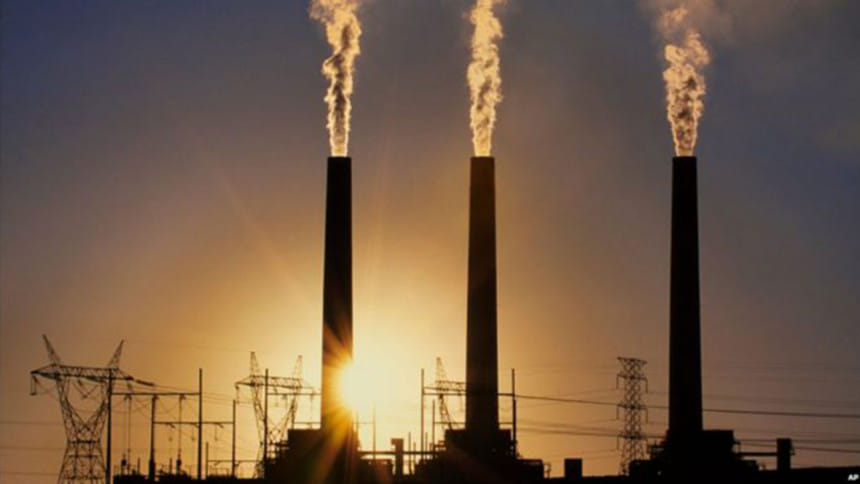Court halts Obama’s key climate plan

President Barack Obama's plans to regulate emissions of carbon dioxide from US power plants have been stalled by the US Supreme Court.
The court ruled that the president's Clean Power Plan could not go forward until all legal challenges were heard.
Designed to cut US emissions by 32% by 2030, the scheme put huge emphasis on a shift to renewable energy.
It formed the key element of the US pledge at UN climate negotiations held in Paris in December last year.
Introduced by the president last August, the plan set carbon reduction goals for each state and it was up to the states themselves to come up with proposals to meet those goals.
A group of 27 states, utilities and coal miners sought to block the proposal in the courts. They argued that the plan was an infringement on states' rights.
An initial attempt to halt the implementation of the plan until legal challenges were heard was thrown out by a US appeals court in Washington in January.
However the Supreme Court voted 5-4 to suspend the plan pending the outcome of the litigation.
White House 'disagrees' with ruling
White House spokesman Josh Earnest put out a statement following the decision:
"We disagree with the Supreme Court's decision to stay the Clean Power Plan while litigation proceeds.
"The Clean Power Plan is based on a strong legal and technical foundation, gives states the time and flexibility they need to develop tailored, cost-effective plans to reduce their emissions, and will deliver better air quality, improved public health, clean energy investment and jobs across the country, and major progress in our efforts to confront the risks posed by climate change.
"We remain confident that we will prevail on the merits."
The ruling could have significant implications for the president's attempt to cut down on carbon.
Under the Clean Power Plan, individual states were due to submit their proposals on how to meet the CO2 restrictions by September this year. That date will be missed.
It is unlikely that all the legal questions over the future of the Clean Power Plan will be resolved before President Obama leaves office next January.
West Virginia's Attorney General Patrick Morrisey called the high court's action a "great victory".
"We are thrilled that the Supreme Court realized the rule's immediate impact and froze its implementation, protecting workers and saving countless dollars as our fight against its legality continues," he said in a statement.
Supporters of the Clean Power Plan were confident that the courts would ultimately upheld its legality.
"The electricity sector has embarked on an unstoppable shift from its high-pollution, dirty-fuelled past to a safer, cleaner-powered future, and the stay cannot reverse that trend," said David Doniger, from the Natural Resources Defense Council.
"Nor can it dampen the overwhelming public support for action on climate change and clean energy."
The ruling will be seen as a major embarrassment for President Obama, who helped craft a new global agreement on climate change at UN sponsored talks in Paris in December.
What will worry the White House more is the division of the court along ideological lines, with conservative justices all supporting the stay while the liberal justices opposed.
If these divisions hold, the Clean Power Plan may suffer further setbacks in the Supreme Court which may ultimately render it useless.
If that was to happen, the ability of the US to live up to its commitments under the Paris Climate Agreement would be in serious doubt.

 For all latest news, follow The Daily Star's Google News channel.
For all latest news, follow The Daily Star's Google News channel. 








Comments